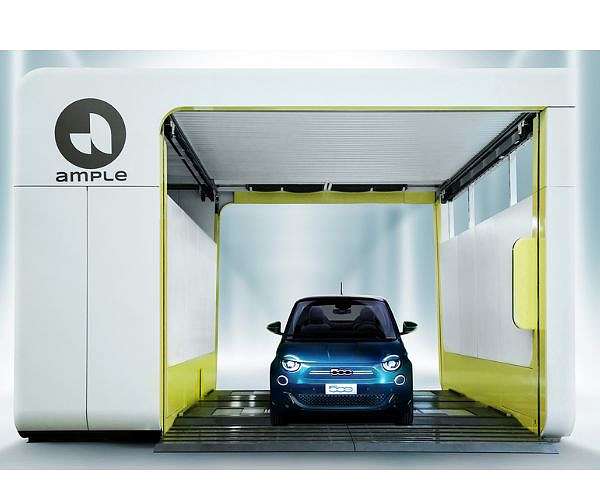Stellantis and Chinese company CATL are planning a $4 billion battery factory in Spain
Auto giant Stellantis and Chinese manufacturer CATL said on Tuesday they would build a $4.3 billion factory in Spain to produce batteries for electric vehicles, the latest attempt to boost Europe’s troubled EV-powered car industry .
They said they aim to start production at the site in the northern city of Zaragoza by the end of 2026.
It could reach “up to 50 GWh of capacity, depending on the evolution of the electricity market in Europe and the continued support of the authorities in Spain and the European Union,” the companies said in a statement.
The two companies signed an agreement in 2023 to produce battery parts for electric vehicle production in Europe.
CATL, which has received strong financial support from Beijing, has launched two other European factories, in Germany and Hungary.
CEO Robin Zeng met with Spanish Prime Minister Pedro Sanchez late on Monday, ahead of the announcement of the 4.1 billion euro deal.
In a message on
During a visit to China in September, Sánchez urged the European Union to “reconsider” a plan to impose tariffs on Chinese electric cars, calling for a “compromise” between the economic powers.
Spanish Economy Minister Carlos Cuerpo called the announcement “excellent news for industry and employment in our country.”
Spain is playing an increasingly important role in European car production, with production of 1.87 million cars in 2023 – the second largest producer on the continent after Germany, according to the European Automobile Manufacturers’ Association.
– Bumpy patch for car makers –
The announcement comes at a turbulent time in the auto industry, as countries try to transition to low-carbon electric vehicles to curb the climate crisis.
Financially pressured Swedish battery manufacturer Northvolt announced the resignation of CEO Peter Carlsson last month.
That came hours after the company filed for bankruptcy protection in the United States.
The company said in September it was cutting 1,600 jobs – a quarter of its workforce – and suspending its facility expansion as it grappled with strained finances and a slowdown in demand.
The company was seen as a cornerstone of European efforts to overtake China and the United States in the production of battery cells, a crucial part of lower-emission cars.
Former Stellantis CEO Carlos Tavares also resigned on December 1, with the company flagging disagreements over how to rescue the group’s dwindling profits.
Like other auto groups, Stellantis blames competition from China and the difficult transition to electric cars for many of its problems.
On November 26, the company announced it would close a factory in Luton, England, resulting in the loss of 1,100 jobs.
– ‘High-end’ EVs –
Founded in 2011 in Ningde, eastern China, CATL produces more than a third of electric vehicle batteries sold worldwide.
The Italian-American-French company Stellantis produces 14 brands, including Fiat, Peugeot-Citroen, Opel, Maserati, Chrysler, Ram and Jeep.
The Zaragoza plant will make lithium iron phosphate (LFP) batteries, which are cheaper to produce but less powerful compared to nickel-manganese-cobalt (NMC), the other current mainstream technology.
The companies said the factory, which will be designed to be completely carbon neutral, would allow Stellantis to “offer more high-quality, durable and affordable battery-electric passenger cars, crossovers and SUVs.”
Stellantis Chairman John Elkann said in the statement that the company will “bring innovative battery manufacturing to a manufacturing site that is already a leader in clean and renewable energy.”
Zeng said the goal of CATL was “to make carbon-free technology accessible around the world.”
The deal is expected to close in 2025, subject to regulatory requirements.
fmp-vab/ds/rlp


